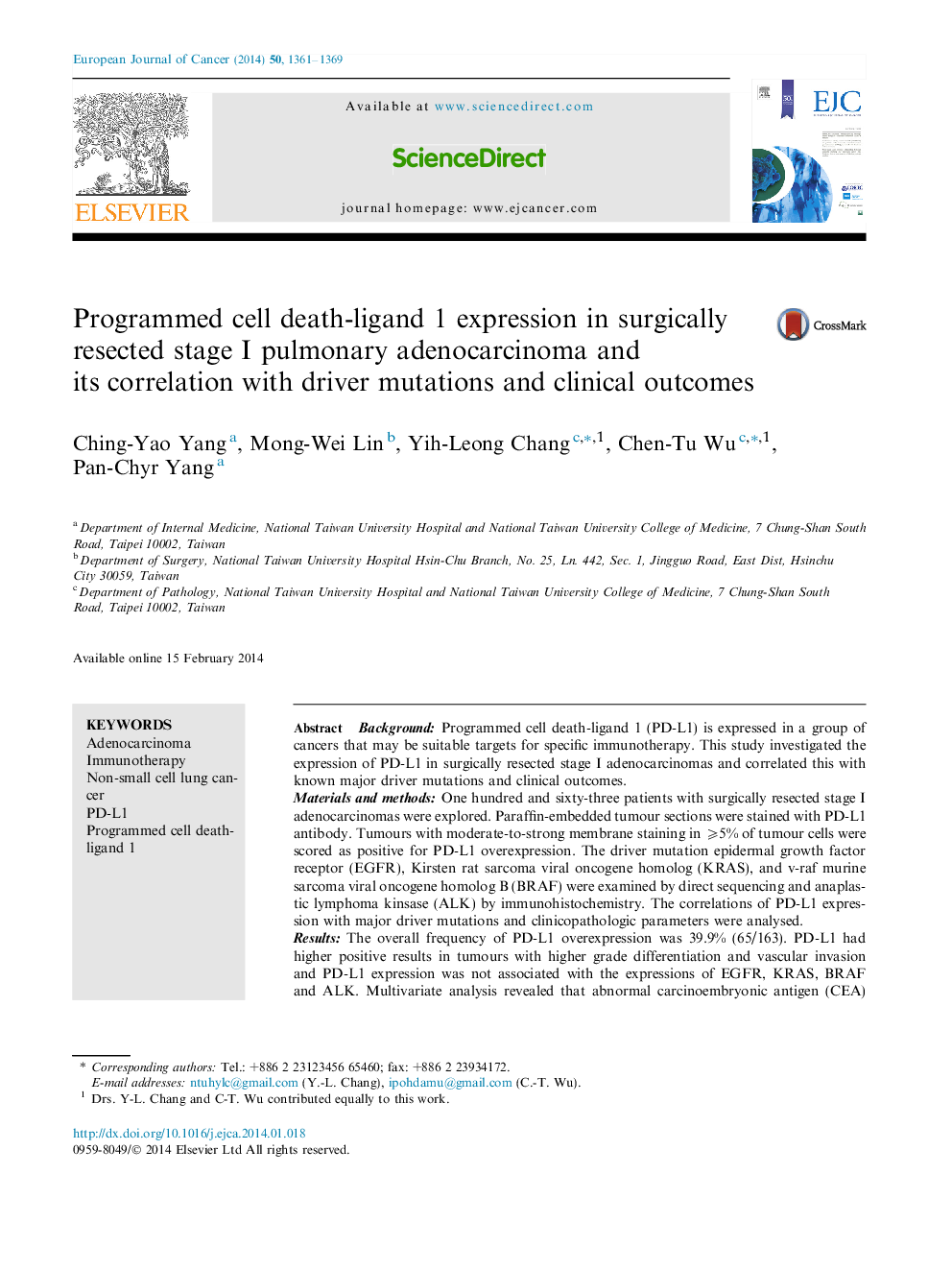| کد مقاله | کد نشریه | سال انتشار | مقاله انگلیسی | نسخه تمام متن |
|---|---|---|---|---|
| 2122001 | 1547121 | 2014 | 9 صفحه PDF | دانلود رایگان |

BackgroundProgrammed cell death-ligand 1 (PD-L1) is expressed in a group of cancers that may be suitable targets for specific immunotherapy. This study investigated the expression of PD-L1 in surgically resected stage I adenocarcinomas and correlated this with known major driver mutations and clinical outcomes.Materials and methodsOne hundred and sixty-three patients with surgically resected stage I adenocarcinomas were explored. Paraffin-embedded tumour sections were stained with PD-L1 antibody. Tumours with moderate-to-strong membrane staining in ⩾5% of tumour cells were scored as positive for PD-L1 overexpression. The driver mutation epidermal growth factor receptor (EGFR), Kirsten rat sarcoma viral oncogene homolog (KRAS), and v-raf murine sarcoma viral oncogene homolog B (BRAF) were examined by direct sequencing and anaplastic lymphoma kinsase (ALK) by immunohistochemistry. The correlations of PD-L1 expression with major driver mutations and clinicopathologic parameters were analysed.ResultsThe overall frequency of PD-L1 overexpression was 39.9% (65/163). PD-L1 had higher positive results in tumours with higher grade differentiation and vascular invasion and PD-L1 expression was not associated with the expressions of EGFR, KRAS, BRAF and ALK. Multivariate analysis revealed that abnormal carcinoembryonic antigen (CEA) and higher grade of differentiation were risk factors for poor relapse-free survival (RFS) and PD-L1 expression correlated with better RFS. Advanced pathologic stage was the independent risk for poor overall survival (OS).ConclusionsThe PD-L1 expression can be used as a prognostic indicator predictive of RFS in patients with surgically resected stage I lung adenocarcinomas. There may be a possibility for immunotherapy targeting the PD-L1 pathway in patients with lung adenocarcinoma in the future.
Journal: European Journal of Cancer - Volume 50, Issue 7, May 2014, Pages 1361–1369